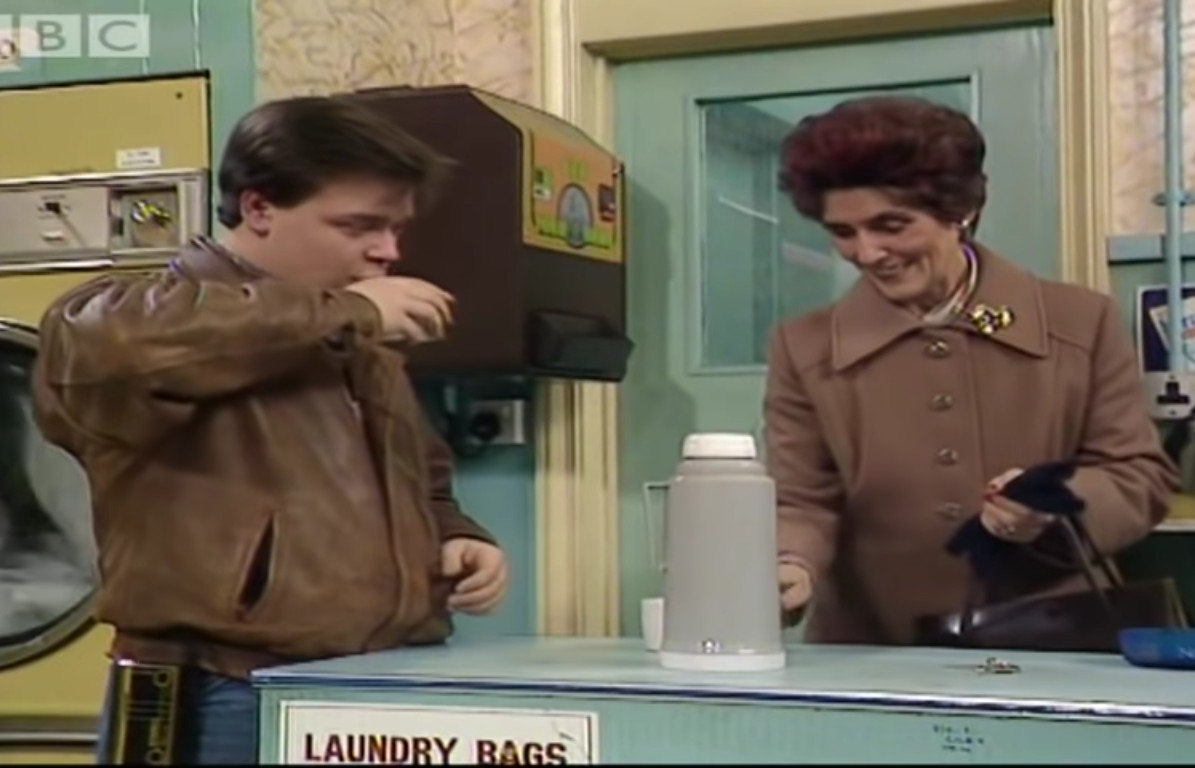A former EastEnders actor has said that a planned gay storyline in the 1980s was scrapped due to the anti-LGBT+ Section 28 law.
The discriminatory Section 28 prohibited local authorities from promoting homosexuality in England, Scotland and Wales, and was enacted in 1988.
While the legislation only directly related to local authorities and schools, it had a wide knock-on effect, as revealed by Gary Hailes, who played Barry Clark on the BBC soap opera.
Appearing on the Distinct Nostalgia podcast, Hailes spoke about his character’s relationship with Colin Russell, who was played by Michael Cashman.
Their on-screen relationship caused public outrage at the time, with a small kiss on the forehead prompting complaints from the public.
Their relationship came to an end in December 1987, and Hailes has now claimed that the fictional couple’s time together concluded because of Section 28.
EastEnders actor claims gay couple’s storyline was cut because of Section 28.
“We built towards them and they were cut because of Section 28,” Hailes told the Distinct Nostalgia podcast.
“The BBC found themselves in a difficult position.”
“They had to be seen to be doing right by the law,” he added.
“There was stuff we shot of Barry coming out to his dad and the backlash.”
“They changed it and that helped put the brakes on what they could do with the characters.”
We built towards them and they were cut because of Section 28.
While Hailes left EastEnders at the end of 1987, Cashman remained.
A year later, the BBC apparently decided their fears about Section 28 were unfounded, and they pressed ahead with a new romance for Cashman’s character.
The harmful legislation impacted harshly on the lives of LGBT+ people in Britain.
Section 28 remained in place until 2003 when it was finally repealed under a Labour government.
Under the harmful legislation, teachers were forbidden from informing children about LGBT+ people and same-sex relationships, councils were prohibited from funding books, plays, leaflets, films or other materials showing same-sex relationships, and LGBT+ youth groups were shut down.
Speaking at the 1987 Conservative Party conference, Prime Minister Margaret Thatcher infamously said: “Children who need to be taught to respect traditional moral values are being taught that they have an inalienable right to be gay.”
Former UK Prime Minister Theresa May voted against repealing the legislation, and in 2000 declared that keeping the law was “a victory for common sense”.
May has since U-turned on this position and later said she shouldn’t have voted in favour of keeping it in place. David Cameron also apologised for the legislation during his pre-No. 10 time as Conservative party leader.
